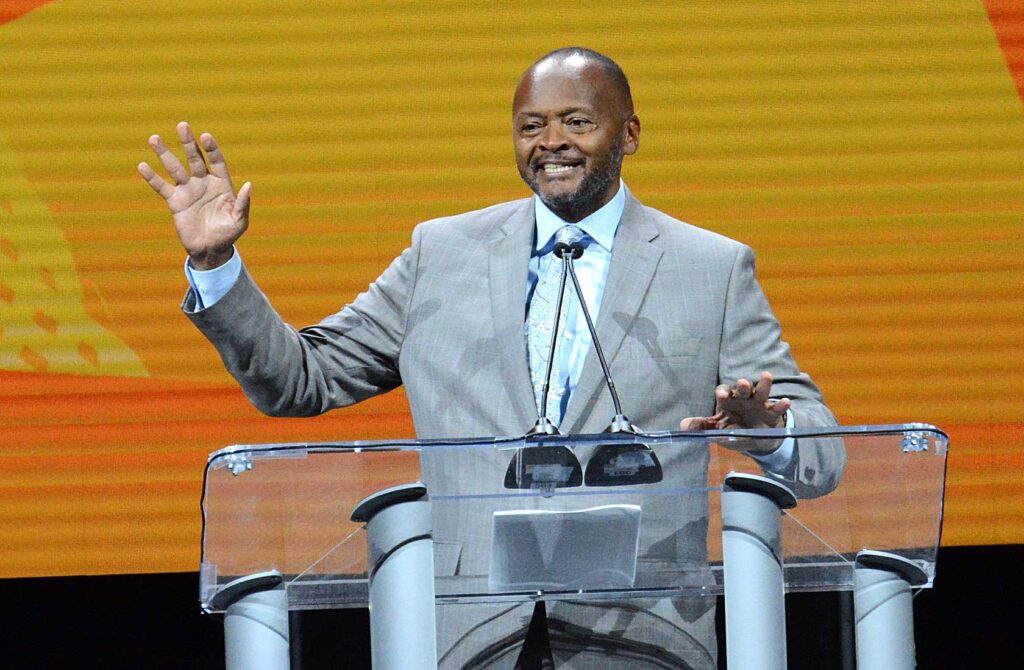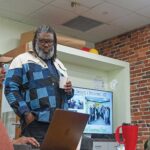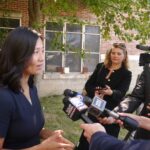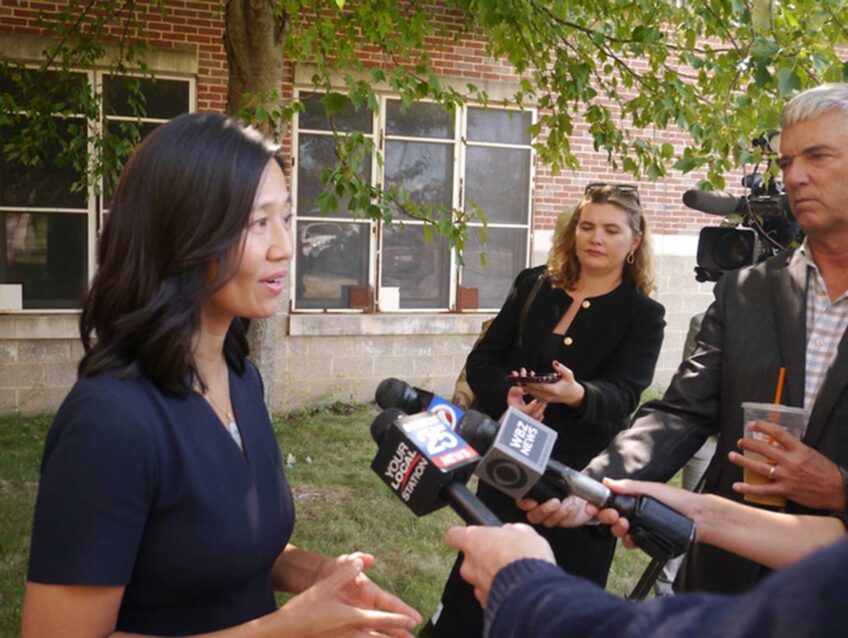NAACP board member calls for renewed action
Michael Curry reflects on Boston, its civil rights history and challenges

Michael Curry stood before a packed conference hall at the NAACP Convention on Saturday and delivered a stirring speech on the history of Black activism in Boston.
Take a “quantum leap,” he said, to 1915, when Tremont Street brimmed with 10,000 Black people protesting the opening of the film “Birth of a Nation” — a demonstration led by the Boston branch of the NAACP and William Monroe Trotter.
Trotter was the publisher of The Guardian, the Boston newspaper that told “our history about lynchings that were happening across this country,’’ said Curry, who is a former president of the NAACP Boston Branch and a current member of the national board.
“If you know the beginning, the end won’t bother you,’’ Curry told a rapt audience in a cavernous hall at the Boston Convention and Exhibition Center.
In days of inspirational speeches and panels, the spotlight also turned to Curry and other Boston civil rights and elected leaders who sounded a renewed call for action amid a series of controversial national events aimed at eroding gains in Black history.
Looking out at the sea of people at the event, Curry said he was filled with emotion, in main part because it had taken at least 15 years to get the NAACP to select Boston as the host city for its convention.
He said the effort to get the NAACP convention to Boston was filled with challenges, including the city’s soaring hotel prices.
But when the NAACP convention site in Nashville fell through three years ago, the chair of the organization’s planning committee contacted Curry and asked: “Do you think Boston’s ready?’’ he recalled.
Curry quickly texted former mayor Martin J. Walsh, who was all in, he said.
“In just a matter of days, Boston was on the map to be the host city for the convention,’’ he recalled.
But then the pandemic struck, stalling an in-person convention. That’s history now.
Since last Wednesday, scores of attendees, those seeking jobs, connections and inspiration, filled the convention halls.
Curry spoke at a Saturday event that was open to the public and featured a panel with Vice President Kamala Harris and Attorney General Andrea Campbell.
Curry told the Banner that as he saw the hall packed with people, he could not help but reflect on activists like the late Leonard Alkins and others who had long dreamed of the day Boston would be host to the convention.
He said he ditched his written speech and spoke form the heart.
Curry said he believed that the convention was “one of the most successful” the NAACP has had, and he hoped that attendees visiting the city would see Boston — its good, bad and ugly — and celebrate “our history as the birthplace of a lot of movements.”
“This was home to many of the architects of movements, like Dr. [Martin Luther] King, Frederick Douglass, William Monroe Trotter and Sojourner Truth. Harriet Tubman also spent time here,’’ he said. “So, we get to tell that story, and at the same time, Boston gets to engage in deep dialogue with the NAACP about the critical issues.”
Those issues include access to the ballot, affirmative action and Black people’s ability to have a seat at the table and an opportunity — all issues that were just as prevalent in 1911 and 1950, he said.
Curry took aim at the U.S. Supreme Court’s recent 6-3 decision to eliminate race as a factor in college admissions and the Florida Board of Education’s updated standards for teaching Black history that say students must learn that enslaved people “developed skills” that could be applied “for their personal benefit.”
These are indication that challenges remain, and the work of activism continues, he added.
“When [Florida Gov. Ron DeSantis] and other local politicians start retelling the story of American slavery, saying it wasn’t that bad — that there were benefits from slavery — that’s gaslighting, and just idiotic,” he said.
“We have a challenge,” Curry added. “We come here for the convention. What we do after is organize, mobilize, educate ourselves, vote and activate.”






